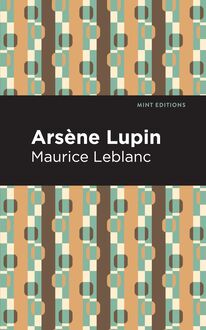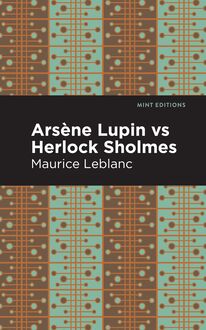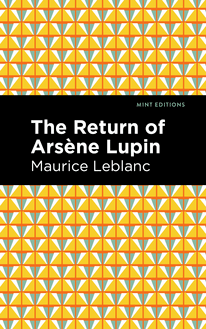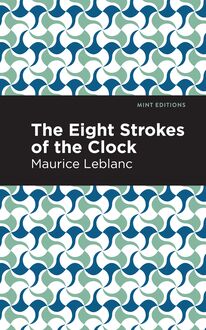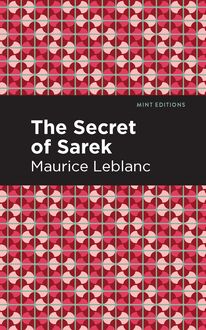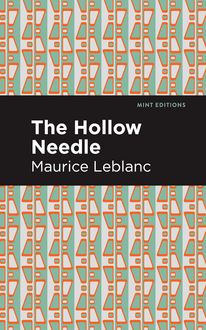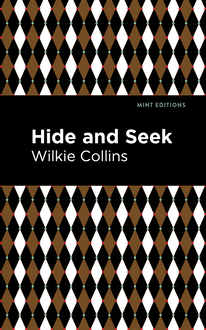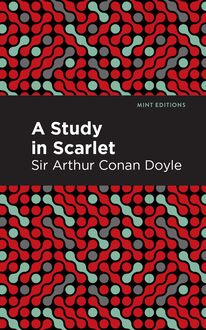-
 Univers
Univers
-
 Ebooks
Ebooks
-
 Livres audio
Livres audio
-
 Presse
Presse
-
 Podcasts
Podcasts
-
 BD
BD
-
 Documents
Documents
-
- Cours
- Révisions
- Ressources pédagogiques
- Sciences de l’éducation
- Manuels scolaires
- Langues
- Travaux de classe
- Annales de BEP
- Etudes supérieures
- Maternelle et primaire
- Fiches de lecture
- Orientation scolaire
- Méthodologie
- Corrigés de devoir
- Annales d’examens et concours
- Annales du bac
- Annales du brevet
- Rapports de stage
La lecture à portée de main
Vous pourrez modifier la taille du texte de cet ouvrage
Découvre YouScribe en t'inscrivant gratuitement
Je m'inscrisDécouvre YouScribe en t'inscrivant gratuitement
Je m'inscrisEn savoir plus
Vous pourrez modifier la taille du texte de cet ouvrage
En savoir plus

Description
813 (1910) is a novel by Maurice Leblanc. Blending crime fiction, fantasy, and mystery, Leblanc crafts original and entertaining tales of adventure starring one of the greatest literary characters of all time—Arsène Lupin, gentleman thief. Partly based on the life of French anarchist Marius Jacob, Lupin first appeared in print in 1905 as an answer to Sir Arthur Conan Doyle’s Sherlock Holmes.
Arsène Lupin is the world’s greatest thief, an unmatched force for good whose exploits threaten the wealth and standing of France’s most wicked men. In this installment of Leblanc’s beloved series, Lupin uses his remarkable wit and chameleon-like ability to move undetected through aristocratic society in order to steal, trick, and cheat his way through life. Despite his criminal nature, he operates under a strict moral code, only taking from those who have taken from the poor all their lives. In this novel, Lupin targets Mr. Kesselbach, a man known as the King of Diamonds whose immense fortune surpasses twenty-million-pound sterling. Finding him at the extravagant Palace Hotel, Lupin executes his plan brilliantly—but when Kesselbach is found murdered, the thief is implicated in the crime. Sent to prison, he is forced to cooperate with the police in order to catch the killer and clear his own name. The ensuing mystery involves some of Europe’s most powerful leaders, both past and present. 813 is a story of romance, mystery, and crime that continues to astound over a century after it was published.
With a beautifully designed cover and professionally typeset manuscript, this edition of Maurice Leblanc’s 813 is a classic of French literature reimagined for modern readers.
Sujets
Informations
| Publié par | Mint Editions |
| Date de parution | 24 mars 2021 |
| Nombre de lectures | 1 |
| EAN13 | 9781513295220 |
| Langue | English |
| Poids de l'ouvrage | 1 Mo |
Informations légales : prix de location à la page 0,0500€. Cette information est donnée uniquement à titre indicatif conformément à la législation en vigueur.
Extrait
813
Maurice Leblanc
813 was first published in 1910.
This edition published by Mint Editions 2021.
ISBN 9781513292373 | E-ISBN 9781513295220
Published by Mint Editions®
minteditionbooks.com
Publishing Director: Jennifer Newens
Design & Production: Rachel Lopez Metzger
Project Manager: Micaela Clark
Translated By: Alexander Teixeira De Mottos
Typesetting: Westchester Publishing Services
C ONTENTS T RANSLATOR ’ S N OTE I. T HE T RAGEDY AT THE P ALACE H OTEL II. T HE B LUE -E DGED L ABEL III. M. L ENORMAND O PENS H IS C AMPAIGN IV. P RINCE S ERNINE AT W ORK V. M. L ENORMAND AT W ORK VI. M. L ENORMAND S UCCUMBS VII. P ARBURY -R IBEIRA -A LTENHEIM VIII. T HE O LIVE -G REEN F ROCK -C OAT IX. “S ANTÉ P ALACE ” X. L UPIN ’ S G REAT S CHEME XI. C HARLEMAGNE XII. T HE E MPEROR ’ S L ETTERS XIII. T HE S EVEN S COUNDRELS XIV. T HE M AN IN B LACK XV. T HE M AP OF E UROPE XVI. A RSÈNE L UPIN ’ S T HREE M URDERS E PILOGUE . T HE S UICIDE
T RANSLATOR ’ S N OTE
A zealous reader, collating the translation of this book with the original, would hit upon certain differences. These are due to alterations made, in most case, by the author himself, and, in all cases, with his full approval.
A. T. D E M.
C HELSEA , England, August, 1910
I
T HE T RAGEDY AT THE P ALACE H OTEL
M r. Kesselbach stopped short on the threshold of the sitting-room, took his secretary’s arm and, in an anxious voice, whispered:
“Chapman, some one has been here again.”
“Surely not, sir,” protested the secretary. “You have just opened the hall-door yourself; and the key never left your pocket while we were lunching in the restaurant.”
“Chapman, some one has been here again,” Mr. Kesselbach repeated. He pointed to a traveling-bag on the mantelpiece. “Look, I can prove it. That bag was shut. It is now open.”
Chapman protested.
“Are you quite sure that you shut it, sir? Besides, the bag contains nothing but odds and ends of no value, articles of dress…”
“It contains nothing else, because I took my pocket-book out before we went down, by way of precaution… But for that… No, Chapman, I tell you, some one has been here while we were at lunch.”
There was a telephone on the wall. He took down the receiver:
“Hallo! … I’m Mr. Kesselbach… Suite 415… That’s right… Mademoiselle, would you please put me on to the Prefecture of Police… the detective department… I know the number… one second… Ah, here it is! Number 822.48… I’ll hold the line.”
A moment later he continued:
“Are you 822.48? I should like a word with M. Lenormand, the chief of the detective-service. My name’s Kesselbach… Hullo! … Yes, the chief detective knows what it’s about. He has given me leave to ring him up… Oh, he’s not there? … To whom am I speaking? … Detective-sergeant Gourel? … You were there yesterday, were you not, when I called on M. Lenormand? Well, the same thing that I told M. Lenormand yesterday has occurred again to-day… Some one has entered the suite which I am occupying. And, if you come at once, you may be able to discover some clues… In an hour or two? All right; thanks… You have only to ask for suite 415… Thank you again.”
R UDOLF K ESSELBACH , NICKNAMED ALTERNATIVELY THE King of Diamonds and the Lord of the Cape, possessed a fortune estimated at nearly twenty millions sterling. For the past week, he had occupied suite 415, on the fourth floor of the Palace Hotel, consisting of three rooms, of which the two larger, on the right, the sitting-room and the principal bedroom, faced the avenue; while the other, on the left, in which Chapman, the secretary, slept, looked out on the Rue de Jud é e.
Adjoining this bedroom, a suite of five rooms had been reserved for Mrs. Kesselbach, who was to leave Monte Carlo, where she was at present staying, and join her husband the moment she heard from him.
Rudolf Kesselbach walked up and down for a few minutes with a thoughtful air. He was a tall man, with a ruddy complexion, and still young; and his dreamy eyes, which showed pale blue through his gold-rimmed spectacles, gave him an expression of gentleness and shyness that contrasted curiously with the strength of the square forehead and the powerfully-developed jaws.
He went to the window: it was fastened. Besides, how could any one have entered that way? The private balcony that ran round the flat broke off on the right and was separated on the left by a stone channel from the balconies in the Rue de Jud é e.
He went to his bedroom: it had no communication with the neighboring rooms. He went to his secretary’s bedroom: the door that led into the five rooms reserved for Mrs. Kesselbach was locked and bolted.
“I can’t understand it at all, Chapman. Time after time I have noticed things here… funny things, as you must admit. Yesterday, my walking-stick was moved… The day before that, my papers had certainly been touched… And yet how was it possible? …
“It is not possible, sir!” cried Chapman, whose honest, placid features displayed no anxiety. “You’re imagining things, that’s all… You have no proof, nothing but impressions, to go upon… Besides, look here: there is no way into this suite except through the entrance-lobby. Very well. You had a special key made on the day of our arrival: and your own man, Edwards, has the only duplicate. Do you trust him?”
“Of course I do! … He’s been with me for ten years! … But Edwards goes to lunch at the same time that we do; and that’s a mistake. He must not go down, in future, until we come back.”
Chapman gave a slight shrug of the shoulders. There was no doubt about it, the Lord of the Cape was becoming a trifle eccentric, with those incomprehensible fears of his. What risk can you run in an hotel, especially when you carry no valuables, no important sum of money on you or with you?
They heard the hall-door opening. It was Edwards. Mr. Kesselbach called him:
“Are you dressed, Edwards? Ah, that’s right! … I am expecting no visitors to-day, Edwards… or, rather, one visitor only, M. Gourel. Meantime, remain in the lobby and keep an eye on the door. Mr. Chapman and I have some serious work to do.”
The serious work lasted for a few minutes, during which Mr. Kesselbach went through his correspondence, read three or four letters and gave instructions how they were to be answered. But, suddenly, Chapman, waiting with pen poised, saw that Mr. Kesselbach was thinking of something quite different from his correspondence. He was holding between his fingers and attentively examining a pin, a black pin bent like a fish-hook:
“Chapman,” he said, “look what I’ve found on the table. This bent pin obviously means something. It’s a proof, a material piece of evidence. You can’t pretend now that no one has been in the room. For, after all, this pin did not come here of itself.”
“Certainly not,” replied the secretary. “It came here through me.”
“What do you mean?”
“Why, it’s a pin which I used to fasten my tie to my collar. I took it out last night, while you were reading, and I twisted it mechanically.”
Mr. Kesselbach rose from his chair, with a great air of vexation, took a few steps and stopped.
“You’re laughing at me, Chapman, I feel you are… and you’re quite right… I won’t deny it, I have been rather… odd, since my last journey to the Cape. It’s because… well… you don’t know the new factor in my life… a tremendous plan… a huge thing… I can only see it, as yet, in the haze of the future… but it’s taking shape for all that… and it will be something colossal… Ah, Chapman, you can’t imagine… Money I don’t care a fig for: I have money, I have too much money… But this, this means a great deal more; it means power, might, authority. If the reality comes up to my expectations, I shall be not only Lord of the Cape, but lord of other realms as well… Rudolf Kesselbach, the son of the Augsburg ironmonger, will be on a par with many people who till now have looked down upon him… He will even take precedence of them, Chapman; he will, take precedence of them, mark my words… and, if ever I…”
He interrupted himself, looked at Chapman as though he regretted having said too much and, nevertheless, carried away by his excitement, concluded:
“You now understand the reasons of my anxiety, Chapman… Here, in this brain, is an idea that is worth a great deal… and this idea is suspected perhaps… and I am being spied upon… I’m convinced of it…”
A bell sounded.
“The telephone,” said Chapman.
“Could it,” muttered Kesselbach, “by any chance be…?” He took down the instrument. “Hullo! … Who? The Colonel? Ah, good! Yes, it’s I… Any news? … Good! … Then I shall expect you… You will come with one of your men? Very well… What? No, we shan’t be disturbed… I will give the necessary orders… It’s as serious as that, is it? … I tell you, my instructions will be positive… my secretary and my man shall keep the door; and no one shall be allowed in… You know the way, don’t you? … Then don’t lose a minute.”
He hung up the receiver and said:
“Chapman, there are two gentlemen coming. Edwards will show them in…”
“But M. Gourel… the detective-sergeant…?”
“He will come later… in an hour… And, even then, there’s no harm in their meeting. So send Edwards down to the office at once, to tell them. I am at home to nobody… except two gentlemen, the Colonel and his friend, and M. Gourel. He must make them take down the names.”
Chapman did as he was asked. When he returned to the room, he found Mr. Kesselbach holding in his hand an envelope, or, rather, a little pocket-case, in black morocco leather, apparently empty. He seemed to hesitate, as though he did not know what to do with it. Should he put it in his pocket or lay it down elsewhere? At last he went to the mantelpiece and threw the leather envelope into his traveling-bag:
“Let us finish the mail, Chapman. We have ten minutes left. Ah, a letter from Mrs. Kesselbach! Why didn’t you tell me of it, Chapman? Didn’t you recognize the handwriting?”
He made no attempt to conceal the emotion which he
-
 Univers
Univers
-
 Ebooks
Ebooks
-
 Livres audio
Livres audio
-
 Presse
Presse
-
 Podcasts
Podcasts
-
 BD
BD
-
 Documents
Documents
-
Jeunesse
-
Littérature
-
Ressources professionnelles
-
Santé et bien-être
-
Savoirs
-
Education
-
Loisirs et hobbies
-
Art, musique et cinéma
-
Actualité et débat de société
-
Jeunesse
-
Littérature
-
Ressources professionnelles
-
Santé et bien-être
-
Savoirs
-
Education
-
Loisirs et hobbies
-
Art, musique et cinéma
-
Actualité et débat de société
-
Actualités
-
Lifestyle
-
Presse jeunesse
-
Presse professionnelle
-
Pratique
-
Presse sportive
-
Presse internationale
-
Culture & Médias
-
Action et Aventures
-
Science-fiction et Fantasy
-
Société
-
Jeunesse
-
Littérature
-
Ressources professionnelles
-
Santé et bien-être
-
Savoirs
-
Education
-
Loisirs et hobbies
-
Art, musique et cinéma
-
Actualité et débat de société
- Cours
- Révisions
- Ressources pédagogiques
- Sciences de l’éducation
- Manuels scolaires
- Langues
- Travaux de classe
- Annales de BEP
- Etudes supérieures
- Maternelle et primaire
- Fiches de lecture
- Orientation scolaire
- Méthodologie
- Corrigés de devoir
- Annales d’examens et concours
- Annales du bac
- Annales du brevet
- Rapports de stage
